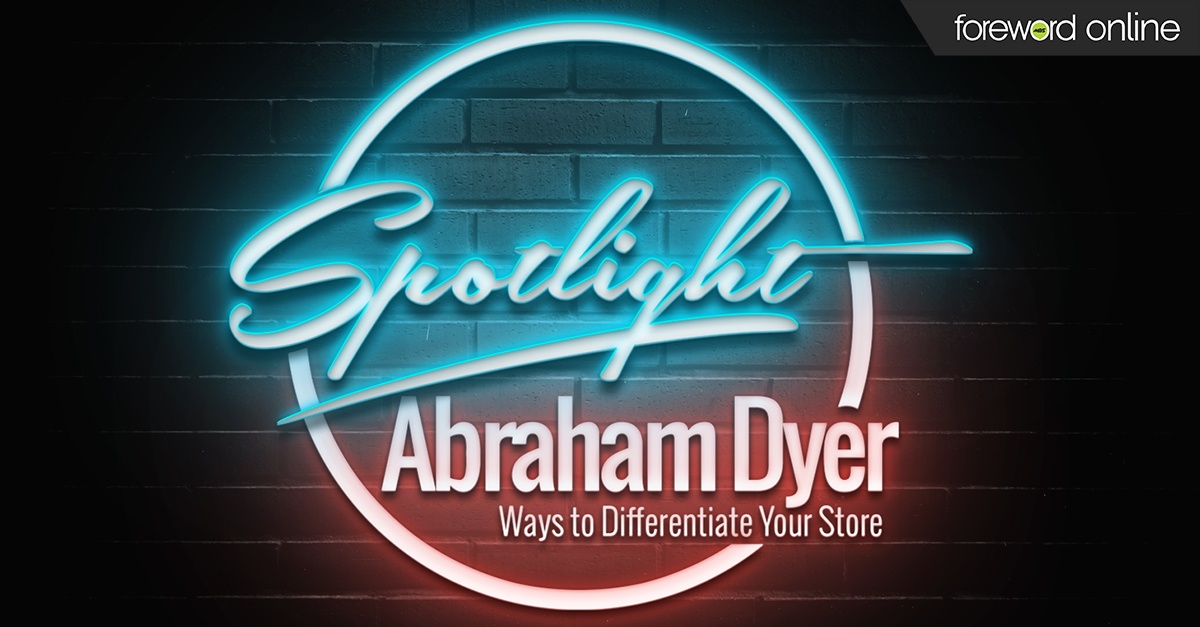College stores face an increasingly competitive market where student loyalty is hard to win. As students choose among competitors, it is vital to communicate what you offer that they cannot get outside vendors. That’s why we sat down with MBS Marketing Coordinator Abraham Dyer to discuss how college stores can identify and use their differentiators to drive more traffic into the store and ensure it remains a vital part of the campus ecosystem.
 What is a differentiator?
What is a differentiator?
In terms of marketing or business, a differentiator is the relevant and valuable ways your store significantly differs from competitors. For instance, with MBS our scale and our service differentiate us from our competitors. We have the resources to simplify course material solutions and the people to provide exemplary service.
Would knowing your store’s differentiators help you be more aggressive in your marketing?
Absolutely. Differentiators are essential to any marketing strategy.
With a college store specifically, they have to answer to two groups with very different goals. On one side, there is pressure for the store to make a profit and provide the school an additional revenue stream. On the other, there is a demand for the store to be a student service, which often means finding ways to save students money. The differentiator is equally important no matter which side your store falls on. Communicating the specific aspect that makes your store different is what brings people through the door. It’s incredibly important.
What’s an example of how a company has effectively used their differentiator in marketing?
Sure. Apple® is a great example. Look at how they chose to brand their company in comparison with Microsoft©. Their advertisements target the company’s image and culture to differentiate themselves. You can see it in those commercials with the “I’m a Mac” and “I’m a PC” guys. Apple is seen as a place that is creative and innovative. Microsoft is seen as a place that is incredibly adept at making research and business machines. That’s not to say Microsoft isn’t creative, but Apple has taken that image and made it something really visible and easy for people to grasp onto.
Why do college stores need to know their differentiators?
Because their market is being attacked from multiple sides — most heavily by online competition. When you have a student population who is predominantly price-driven, you have to find specific ways you can serve the market that large online retailers can’t. So, it is vitally important that college stores find differentiators that have significance for students.
Can you think of a college store who has done a good job of highlighting those differentiators?
One that comes to mind is UC Davis. Their ability to see through the cloud of a risky market and innovate in spite of it definitely sets them apart. They were the first ones to really treat online retailers as a resource instead of an enemy or threat, and it paid off really well for them. They adopted price comparison early on. They have an aggressive student rewards program. They employ about 200 student workers, even in supervisory roles. They created student textbook scholarships based on the revenue from students using their Amazon affiliate links.
What advice would you give a store that struggles to highlight their differentiators?
Focus on service. Embrace the small business mentality. If I go to a small shop with more one-of-a-kind type merchandise, the prices are almost certainly going to be higher than online. Make sure your store is fulfilling one of three things in its relationship with customers: offer the lowest cost, the highest quality or the most convenience. If you can meet any of those in one way or another, then you have the recipe for what your differentiator is.
If you know you are going to lose on cost, that’s fine. Be the Maserati of what you do. Be the most amazing small college store that you can be. Students will understand and appreciate it. They will come to you for answers that are not available online. Your knowledge is going to be the most important thing in that conversation.
Also, have pointed and specific conversation with students. If you can get into a collaborative environment where you are listening to what students want, it can help answer a lot of questions. You have to understand what students want so you can communicate it to them in a way they find meaningful.
For example, some stores put the store profits back into the student services, like the student center, or into student organizations. This is a great value-add to me or an administrator, but how do you communicate it to a student so they see it the same way? Listening to students talk about what they want will help you figure out how to explain it to them in a way they understand.
Having a student committee is a good tactic for opening that dialogue with students. If you think about who your audience is for a college store, the majority of that audience is students. Involve them and listen to what they are telling you.
How can college stores discover their differentiators?
First things first, know your audience. Like I said before, identify what is most important to them. Once you have identified what they want, figure out how your business answers that need. If you are a college store that has been around for a number of years, you already have a successful model. You just have to hone in on the details that will make the store a successful business. You shouldn’t be scared that the market is getting competitive. Figure out what your specific voice is in the student conversation. That is your differentiator. That’s what you are offering that no one else is.
How does data collection fit in?
Data is great. Collect all of the shopping behavioral data is super valuable, but you get it after the fact. What we’re talking about happens before that transaction occurs. The differentiators drive your marketing message. The data is how you test your assumptions.
Why is competition a good thing?
Competition is natural. Competition breeds innovation. You’re not going to get away from it, right? It gives you an opportunity to isolate the most valuable aspects of your brand.
What would you say to a store that has lost all hope of setting itself apart?
It is easy to lose sight of your role in the school’s culture if you are managing course materials. The school celebrities are coming from the athletic department or the academic world. It’s really easy to get lost in that process and stop thinking of ways that you’re bringing something of significant value to the students.
Not everybody can do it. It’s not an easy task. That’s why there are marketing people who help you figure out how those conversations go. But the value is there. It’s very simple. If you have a good product or service, you are communicating it well and often, and you meet one of those three criteria — offer the lowest cost, the highest quality or the most convenience — you will thrive regardless of the competition.





